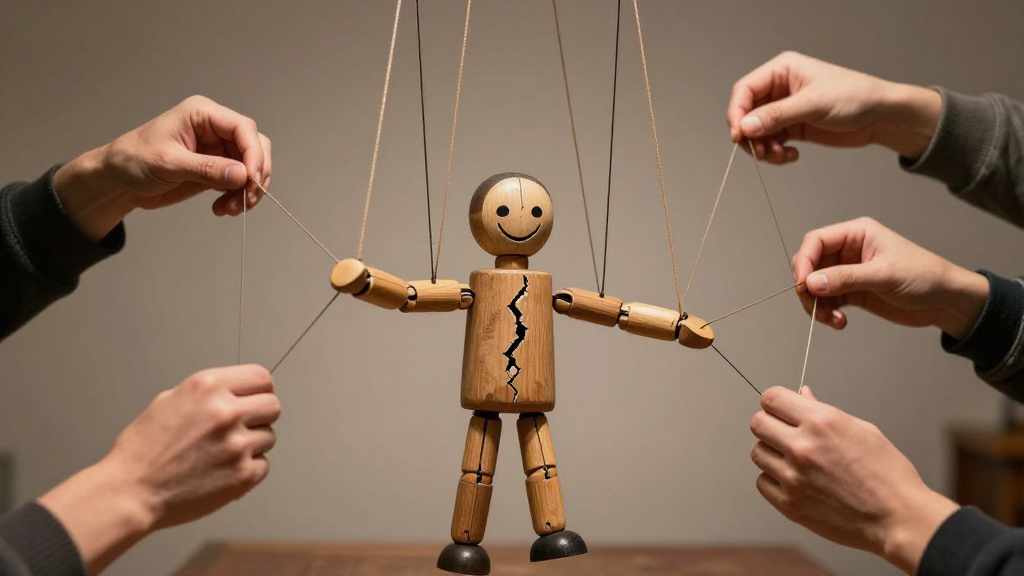
You're managing five departments while your colleagues manage one. You've been handed seven additional projects because others couldn't deliver. Your father calls late at night expecting you to solve problems that could wait until morning. Your mother needs constant answers. And somehow, despite all this competence and capacity for others, you walk past the same items twenty times without putting them in the cupboard.

You've had a migraine since Wednesday. Your head is pounding, you're exhausted, and you desperately need rest. But when your best friend asks for help, you hear yourself saying yes anyway. Or maybe it's your sister's friend who's been staying at your house four to five nights a week without your permission.

You reach for your phone again. The third time in ten minutes. Still no response from your daughter to the text you sent two hours ago-the one asking how her day went, sharing that funny meme you thought she'd like, checking if she's okay. Your chest tightens. Your mind starts spinning: Is she angry with me?...

You've done everything right. You've suggested activities you could do together-baking, crafts, walks. You've read the books on love languages and tried to speak theirs. You've communicated your needs clearly: acts of service, words of affirmation, feeling connected. You've been vulnerable enough to say "I'm getting quite close to just not wanting to do this anymore." And still, you're sitting here feeling like roommates instead of partners.

You've been trying so hard. You've bent over backward to be understanding when your adult daughter goes cold. You've bitten your tongue when her moods swing from warm to icy without warning. You've rearranged your life around her unpredictable availability...
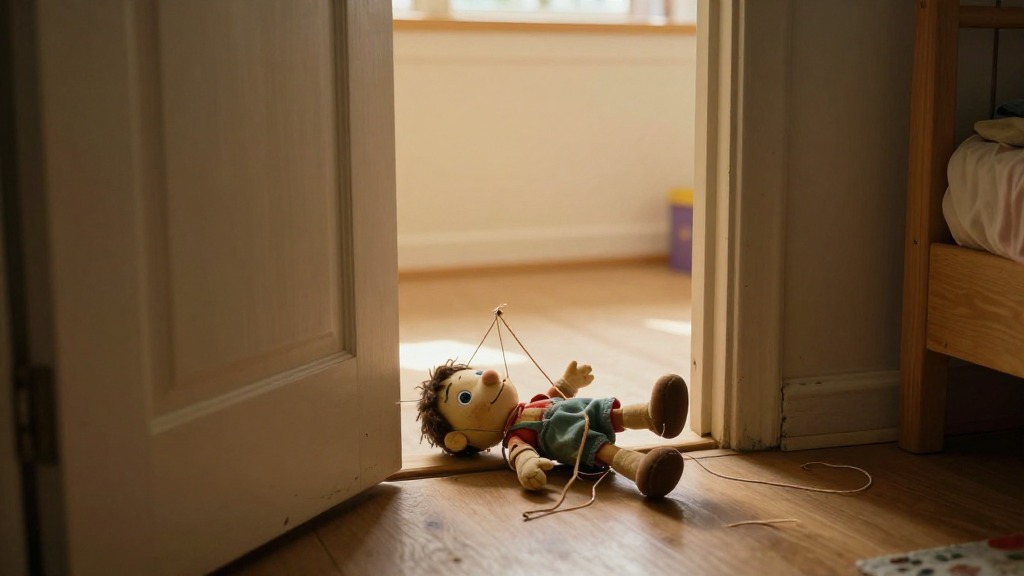
Your chest tightens. The text from your daughter was curt-again. You feel that familiar surge of panic: What if she cuts me off from the grandchildren? Your fingers hover over your phone. Maybe if you send a thoughtful gift...
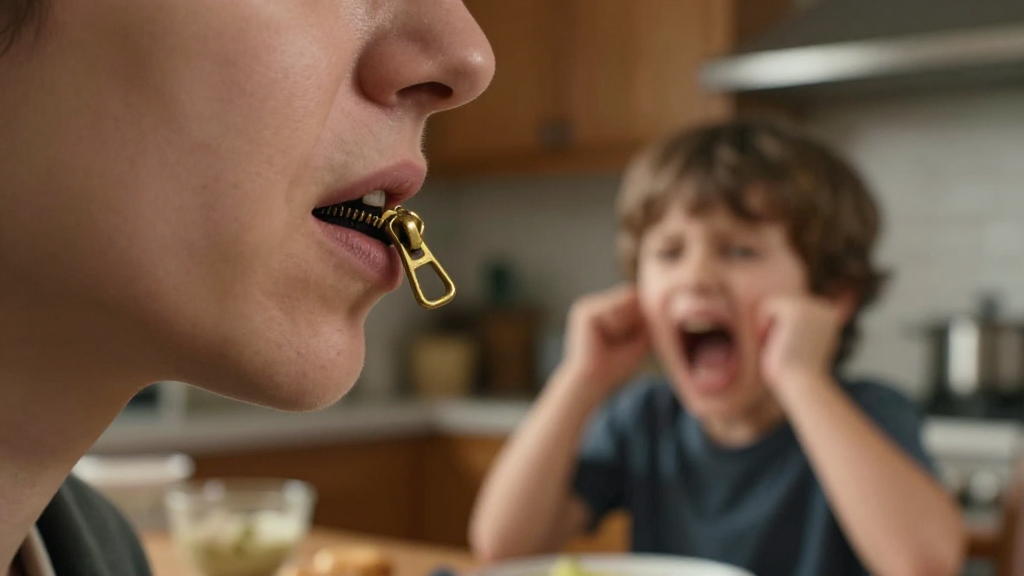
His teacher sent another glowing email today. She's such a joy to have in class, she wrote. Always respectful, follows directions beautifully, gets along wonderfully with other children. You stare at the screen and wonder if she's talking about the same seven-year-old who spent the last hour teasing his sister until she cried.

And yet somehow, the more you give, the further they seem to pull away. You're not imagining this. There's a reason your most generous efforts produce the opposite of what you're hoping for. And it has nothing to do with whether you love enough or try hard enough. It has everything to do with something that happened when you were three years old.
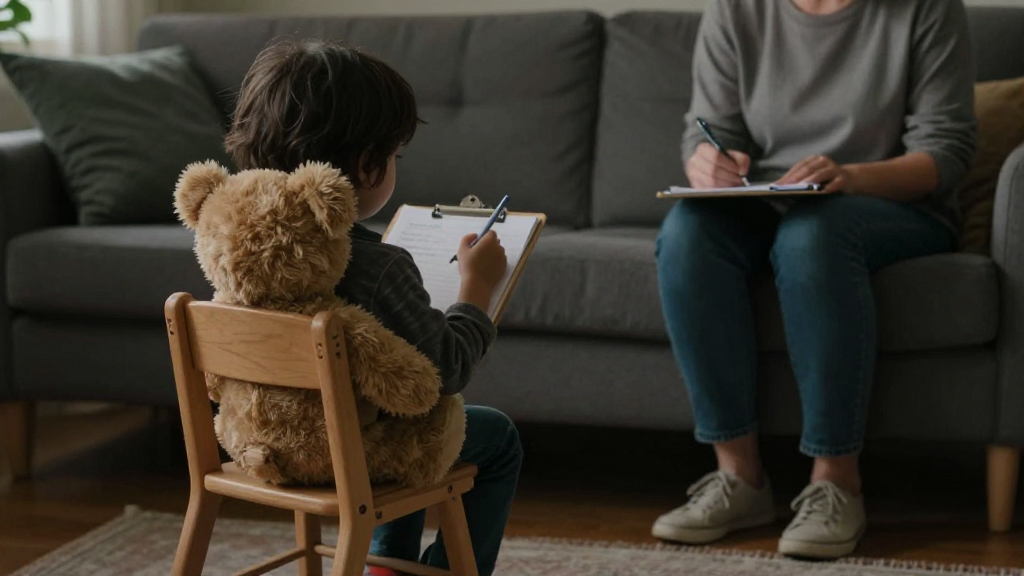
The visible symptoms are everywhere once you start looking: The constant apologizing. You say "sorry" when someone bumps into you. The reassurance loops. Checking in with your partner about whether they're upset. The decision paralysis. Every choice triggers a cascade of worry about others' potential reactions...

You've rehearsed it a hundred times. You know exactly what you want to ask. But every time you think about actually saying the words-"Can I see the baby when she's born?"-your throat closes up and your mind floods with every possible version of rejection. So you say nothing. And the silence becomes its own kind of torture.

If you grew up with a critical or emotionally unpredictable caregiver-someone where your worth felt conditional, where nothing you did was quite good enough-your brain built something psychologists call hypervigilance to social threat. Your nervous system became exceptionally skilled at detecting even tiny signs of disapproval.

You've been working on this. The therapy sessions that leave you exhausted but hopeful. The meditation practice you've maintained for years. The two times you successfully spoke up to your partner instead of swallowing your annoyance. You forced the words out about the morning routine. You sent that text when you felt excluded instead of typing and deleting for twenty minutes.

Your partner asks how you're doing. "I'm okay," you say automatically. But you're not okay. You're carrying something heavy—stress from work, worry about a decision, that conversation that's been replaying in your mind. Your partner doesn't push. You both move on. And later, alone even though you're together, you feel that familiar loneliness creeping in.

Your stomach tightens. The instant internal conflict starts: I should help them immediately crashes into but I had other plans. You overthink what to say, searching for words that won't sound selfish, won't trigger that corrective tone she gets. By the time you respond, you're already anxious-and you haven't even decided yes or no yet.

So you stopped asking for things. You handle everything yourself. When something your partner says stings-like "I have enough to do"-you don't bring it up. You interpret it as "you're not good enough," go away, clean yourself up, come back fresh.

If you find yourself spiraling less about the actual problem and more about managing everyone else's emotional response to it-something deeper is going on. And what you've been blaming isn't actually the cause.

You've done the work. You wrote out your reasons for leaving-eleven of them. You started breaking the rituals, eating separately, watching TV in different rooms. The decision was starting to feel real. Then the crisis hit and your partner showed up differently...

Your mother said something that cut deep, that familiar awful feeling flooded your chest, and before you even realized it, your thumb was finding their contact. Your partner answered. They were kind, reassuring, exactly what you needed in that moment. And somehow that made everything worse...

You finish explaining where you're going, why you're going, when you'll be back, what you'll be doing there. Before he even asks. You watch his face for confusion, and when you see it-that slight furrow-you jump in with more details...

You've spent two hours absorbing his work stress. He came home tense, and you couldn't just let him sit with it—you listened, problem-solved, tried to fix it. He went to bed fine. You lay awake until 3 AM...

You've been trying to explain it to your partner for years. You've found new ways to say it. You've tried patience, directness, vulnerability, research articles. You've had the same conversation dozens of times...

You've worked on your tone. You've picked the right moments. You've learned to be calm and rational when addressing something that upsets you. But somehow, the other person still reacts defensively. You can feel it happening-their walls going up the moment you start to speak, even though you're being so careful about how you say it...

With your colleague: You spot the same defensive patterns, the same manipulative moves. You think several steps ahead. You gather information. You escalate strategically to senior management. You navigate the discomfort when she suspects you. You're operating in what you've called your "game mentality"...

With that difficult colleague at work, you can see the defensive moves coming, spot the manipulations, stay strategic. But with your partner? It's like all that skill evaporates. You see something toxic and you're calling it out immediately...

But you're still there. Still in the relationship. Still feeling like you're "living in a war zone" inside your own head. And every day, the guilt gets heavier. The catastrophic predictions get louder...

When most people struggle to set a boundary they know they need, they immediately blame their own weakness. Not assertive enough. Too afraid of conflict. Lacking courage or willpower. But here's what's strange: in 73% of cases I've worked with involving boundary-setting paralysis, the person demonstrates courage in other areas of their life...

Then you're face-to-face with your partner. Your chest tightens. The words dissolve. You hear yourself saying something entirely different, or nothing at all. Later, alone again, you wonder what happened. Where did all that clarity go? If you've experienced this pattern-conviction when alone, paralysis when together-you've probably blamed yourself.

You've tried to leave five times. Each time, the same crushing weight lands on your chest. So you stay in a relationship that stopped feeding you years ago, and you hate yourself a little more each day for not being strong enough to just go. But here's what almost no one tells you about why you're stuck: You're aiming at the wrong target entirely.

When you're with others, part of your brain activates a monitoring system. You perform happiness rather than feel it. This constant monitoring creates emotional disfluency—losing access to your authentic emotional experience.

When your relationship feels like walking through a minefield, the natural assumption is that you're stepping wrong. Maybe you're not communicating clearly enough. Maybe you need to be more helpful around the house. Maybe if you just tried harder to understand what they need, stopped making excuses when your back hurts, loaded the dishwasher the right way-maybe then the criticism would stop.

You have your work persona-professional, put-together, boundaries firmly in place. Your best friend persona, where vulnerability is possible but carefully measured. Six different versions of you, moving through your day. Is this fragmentation or adaptive flexibility?

Your ex-husband said you have zero empathy. When your mother calls about her joint pain, you're already mentally compiling a list of orthopedic surgeons before she finishes her sentence. When a friend shares a struggle, you translate it instantly into a problem with actionable steps.

You're exhausted. Not just physically tired—though that upper back tension that gets worse after every family phone call certainly doesn't help. You're emotionally depleted from trying to keep everyone else's relationships intact while your own needs go unmet. Discover why helping everyone else keeps you stuck and learn to reclaim your energy for your own life.

You finish tidying up. You put things away. You handle the tasks that needed doing. And then the text arrives: another reminder about what you didn't do, what still needs attention, how they're always the one cleaning up after you. Discover why nothing you do feels good enough and learn to trust yourself again.

You used to know what you thought. You used to be confident in your own perceptions. Now you spend three days after every disagreement replaying conversations in your head, trying to figure out if you actually did something wrong. Learn why your self-doubt isn't weakness—it's a predictable response to having your perceptions questioned over and over again.

By the end of this page, the 'yes' that escapes before you think will finally stop feeling like betrayal — and that's when you'll be able to work with your body on boundaries instead of against it.

It's 3:17am. You're scrolling through your phone, reading nothing in particular, watching videos you won't remember tomorrow. You know you should be asleep. You have a brutal day ahead—doctor's appointments to coordinate, work deadlines you're already behind on.
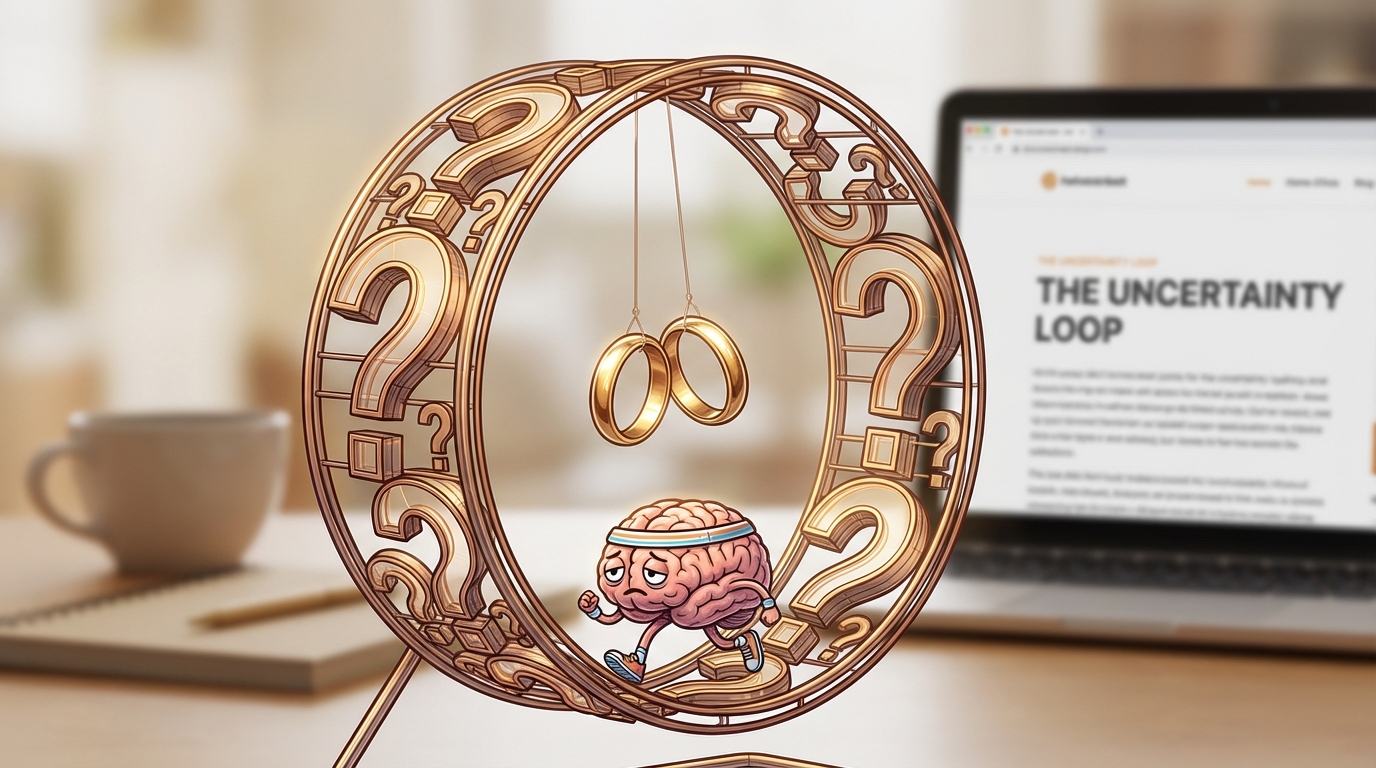
The uncomfortable feeling starts in your stomach the moment they mention going out. Where are you going? Who's going to be there? What time will you be back? You try to keep the questions inside. But they push their way out anyway.

You're the reliable one. The person who shows up, who gets things done, who handles what others can't. You've presented at conferences while in severe pain. You've taken on seven extra projects because your colleagues couldn't finish them.
The night before the funeral, your stomach was a disaster. You barely slept. And part of you felt ridiculous about it—like you were making yourself sick over something you should be able to handle. Then you got there. And watched as every granddaughter was handed a rose to place on the coffin. Every granddaughter except yours.
You've tried being reasonable. Sometimes you help, sometimes you hold firm. You explain your limits, then watch as the demands intensify anyway. The threats get worse. The guilt becomes crushing.
You know that feeling. It's not quite sadness. It's heavier than that - like carrying invisible bricks everywhere you go. The weight is there when you wake up. It's there on holiday. It's there when you should be enjoying a walk with your husband.
You've always been the reliable one. The one who follows through. So why does talking to colleagues feel exhausting? Why do you have no friends despite living somewhere for years?
Someone asks you for a favor. Before you've even processed the request, the word is already out of your mouth. "Yes." You didn't think about it. The response was automatic—like a reflex.

Imagine a friend who agrees with everything you say. Every thought, every belief, every wild idea—validated without question. Available 24/7. Never judging. Never pushing back. Never telling you when you're wrong. Sounds helpful, right? Actually, for some people, it's destroying their grip on reality.

Picture this: You hire a career coach to fix your work stress, see a relationship therapist for marriage issues, work with a nutritionist for health goals, and consult a financial advisor for money problems. Each expert knows their field inside and out. Yet somehow, you're still struggling with the same underlying patterns across multiple areas of your life...

It's 6 PM on a Tuesday. The kitchen smells of roasted chicken and vegetables—a meal you chose specifically because your child ate it happily just last week. Your five-year-old takes one look at the plate and declares, "I hate chicken! I'm not eating this!" Your shoulders tighten. Your jaw clenches. Here we go again.

That wedding invite? It sat in Barbara's purse like a bomb. Just knowing it was there made her heart race. Her chest felt tight. Her sister was getting married in California...

Do you wake up feeling heavy, unmotivated, and dreading the day ahead? Morning depression is more common than you think, affecting millions of people...